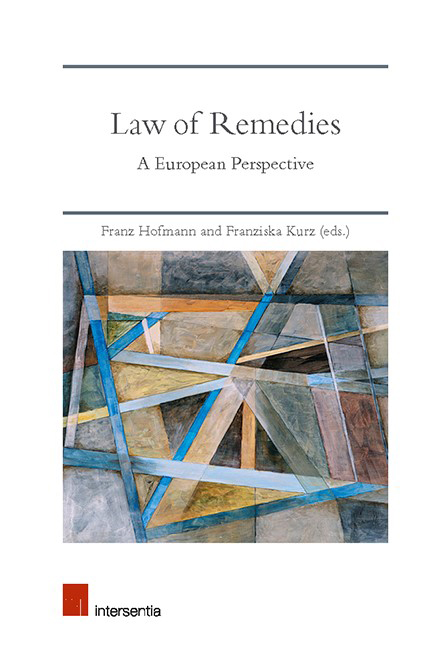Book contents
- Frontmatter
- Contents
- List of Cases
- List of Authors
- PART I THE ISSUE OF REMEDIES
- PART II MECHANISMS OF ENFORCEMENT
- PART III FUNCTIONS OF REMEDIES
- Disgorgement of Profits: Distributive and Deterrant Logics
- Preventive Liability and System of Sanctions in Tort Law
- PART IV UNDERLYING PRINCIPLES
- PART V REMEDIES IN CONTRACT LAW AND INTELLECTUAL PROPERTY
- Index
- About the Editors
Disgorgement of Profits: Distributive and Deterrant Logics
from PART III - FUNCTIONS OF REMEDIES
Published online by Cambridge University Press: 09 November 2019
- Frontmatter
- Contents
- List of Cases
- List of Authors
- PART I THE ISSUE OF REMEDIES
- PART II MECHANISMS OF ENFORCEMENT
- PART III FUNCTIONS OF REMEDIES
- Disgorgement of Profits: Distributive and Deterrant Logics
- Preventive Liability and System of Sanctions in Tort Law
- PART IV UNDERLYING PRINCIPLES
- PART V REMEDIES IN CONTRACT LAW AND INTELLECTUAL PROPERTY
- Index
- About the Editors
Summary
INTRODUCTION
The law assigns individual property rights in order to achieve an optimal allocation of goods. Exclusive property rights create markets because they force parties to conclude contracts in which they negotiate the price and further conditions for the use of the goods. If this allocation mechanism is undermined by a one-sided appropriation of a good, the legal system must respond by providing remedies for the right holder to restore the market mechanism. In such a case, the principal remedy is an injunction. An enforceable injunction forces the infringing party back to the negotiation table, thus restoring the contract mechanism.
Nevertheless, there is usually a time gap between the infringement, its discovery by the right holder, and the issuance of an injunction. Damages and disgorgement remedies are aimed to close that time gap by either simulating a state in which the parties would have contracted or by preventing the infringement in the first place. Damages focus on the status of the right holder and aim to restore the status quo ante. Usually, this is a sufficient incentive not to infringe. However, there are cases of fautes lucratives, profitable torts, where the gains of the infringer exceed the losses of the infringed party. The disgorgement of those profits is oft en justified by the simple statement : ‘tort does not pay’, or more elaborately : ‘right or wrong should not be reduced to a figure in a business calculation .’ Those popular demands serve intuitive justice. Who commits a tort must not profit from their doings. Therefore, he or she should be stripped of all profits, which should be handed over to the victim.
Nevertheless, the reality is not so simple. Let us think of the owner of a car who steals a screw from a neighbour and fixes a minor problem with the car. The owner then sells the car well above market value. Does the owner really have to render the profit to the neighbour as the owner of the screw? Probably not, because the screw made no significant contribution to the ultimate profit. Just like money that is spent for a winning lottery ticket, the screw was a replaceable, random factor in the transaction producing the profits. Therefore, it does not seem fair to deprive the car owner of the profits of the sale.
- Type
- Chapter
- Information
- Law of RemediesA European Perspective, pp. 153 - 168Publisher: IntersentiaPrint publication year: 2019



